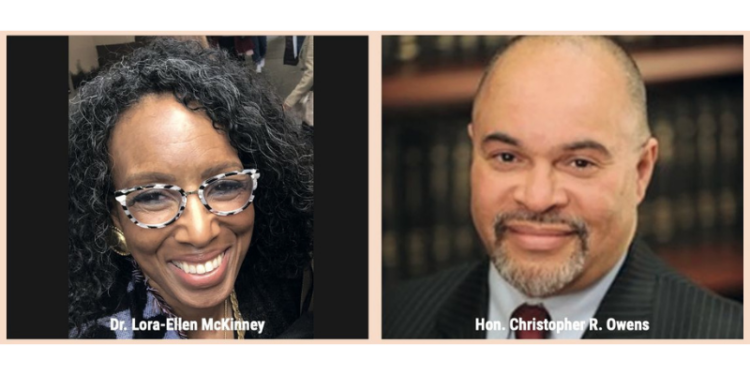In the aftermath of a divisive and historic national election, the outgoing President of the United States grabbed the media headlines by conferring on his son an Executive Grant of Clemency as well as a pardon. Joseph R. Biden made his own history on December 1, 2024, by allegedly reneging on his promise that he would adhere to the rule of law and not assist his son, who was set to be sentenced in two criminal cases, with either clemency or a pardon.
The appropriateness of President Biden’s action has been scrutinized and debated. Parents were understanding; others less so. In fact, the President had experienced much heartbreak due to the tragic deaths of his wife and a young child, as well as an adult child later on. To make matters worse, his surviving son developed substance abuse and mental health challenges, likely related to his physical injuries from the accident that killed his mother and sister, and the emotional trauma of those experiences. From Congress to neighborhood corners, the country missed an important opportunity for a civic conversation about trauma, substance use disorders, and recovery. Despite his son’s legal challenges, President Biden had not interfered with the investigations into Hunter Biden and had pledged not to provide a legal lifeline available only to him.
The re-election of former President Donald Trump changed the legal, political, and psychological calculus under which President Biden operated. Himself twice impeached for questionable and possibly treasonous actions as President, Trump was now broadcasting his intentions. He announced prospective pardons of individuals convicted of crimes relating to the January 6th insurrection, had previously pardoned individuals who were convicted of crimes – and is currently “hiring” them as key government employees. Trump has also been preaching his desire to pursue and prosecute political enemies. Furthermore, it was not totally clear whether or not Hunter Biden would or could not be further prosecuted. Facing these realities, “father” Biden threw his best intentions aside and did what he felt was required for his son’s protection. Pardons, as it happens, are complicated. Consequently, the American people are again divided.
In this arena, the President of the United States has been empowered to act in a manner similar to the royalty against whom we fought for our freedom. This impunity of presidential action is especially true following the Supreme Court’s decision of July 1, 2024, to grant former President Trump full immunity for questionable or criminal acts engaged in while in office. Pardons are meant to relieve currently or formerly incarcerated persons of some or all of the legal consequences of their crimes.
Here is the law:
Article II, Section 2, Paragraph 1 of the Constitution of the United States of America states that the President “shall have the Power to grant Reprieves and Pardons for Offences against the United States, except in Cases of Impeachment.”
The prevailing interpretation of this language, as established in Supreme Court cases, is that this type of power, which has roots in English law, is relatively unlimited. (For more detailed information, please read the 1886 Supreme Court case, Ex Parte Garland, and view the legal statute).
Questions abound. Would President Biden have pardoned his son had the presidency remained under the control of the Democratic Party? Likely not. It appears that the President held the perception, based on credible evidence, that Hunter had been singled out for political reasons, simply because he was the president’s son.
As President of the United States, Joe Biden certainly had the right to grant such a pardon, though many across the political spectrum seemed in agreement that there was something unseemly about pardoning a son in advance of his court date. The pardon and clemency also came, however, in advance of the next President’s installation – an individual who had indicated his antipathy toward Hunter and his father.
President Biden did not limit his concern to his son. Taking into account the hostile political environment, he has considered preemptive pardons for White House staff who might be targeted for investigation by Trump’s nominee for FBI Director, Kashyap “Kash” Patel. Patel has promised a Federal Bureau of Investigation revamped for revenge.
This is a sticky situation. How are the American people best served by powers first granted during an era when monarchs had nearly absolute power, and now are operating in a time period when legal and ethical precedents are being abandoned by individuals and political parties focused on acquiring more power – if only to “offset the advantage of the other side?”
While we can hope that both major political parties will stand up for decency, the rule of law, and common sense, there is no guarantee that they will. In a democracy, the parties need to hear from the people. As citizens dedicated to the appropriate enactment of our constitutional structures, we put forth the following concrete suggestion: Amend the Constitution of the United States to specify, and therefore limit, the power of a President to pardon individuals and grant clemency. In actuality, this is the only formal option that all of us have at our disposal.
The initiators of this process will probably be Democratic members of the House or Senate, but they will hopefully find more allies across the aisle than they expect because taking action on this issue does distribute legal and political benefits more broadly than partisans may think.
For your consideration, therefore, we present the following:
RESOLVED: That Article II, Section 2 of the Constitution of the United States of America be amended as follows:
A fourth paragraph will be added to Section 2 with the following language:
“Notwithstanding the provisions set forth in Paragraph 2 above, the President shall not be permitted to pardon, either prior to or after conviction, any of the following Subjects:
(a) Any individual related to the incumbent President by blood or marriage. This provision does not prevent a successor to the President from granting a pardon to the incumbent President’s relatives.
(b) Any individual who, in their capacity as an elected or appointed Federal official, has either (1) been convicted of a criminal act related to election interference and/or an insurrection and/or treason, or (2) been removed from a Federal position – appointed or elected – as a result of a criminal conviction.
(c) Any individual who, as a private citizen, has been convicted of a criminal act related to an insurrection and/or treason and/or an act of interference in the lawful transfer of power or office from an incumbent Federal officeholder to an incoming Federal officeholder, or an act of violence directed at a Federal officeholder, elected or appointed.
(d) Any individual who has served as a member of the current President’s White House staff or Cabinet. This provision does not prevent a successor to the President from granting such a pardon to the incumbent President’s former staff or Cabinet members.
(e) Any individual whose circumstance is covered by clauses (a) through (d) above, may only receive clemency regarding incarceration if either (1) they have served a minimum of one-third of the amount of time established for their sentence, or (2) they have petitioned the President for compassionate release based on medical evidence pertaining to a health condition, but not inclusive of any alleged physical danger from fellow residents of a facility.”
###
The demographic profile of individuals incarcerated within Federal facilities does not match the profile of most individuals convicted of crimes like political corruption, bank fraud, treason, election interference, or insurrection. The typical prisoner in a Federal facility is a person of color without “network” connections or an elite educational background. Unless a particularly courageous President decides to “dig deep” and embrace political risk, most Federal prison residents will be granted neither pardons nor clemency. America’s criminal justice system has its biases (see current regulations for Executive Clemency here and the United States Sentencing Commission report here).
To his credit, President Biden followed his pardon of Hunter Biden with the largest number and most diverse profile of pardons ever granted by one President at one time. On December 12, 2024, Biden granted 39 traditional pardons and announced sentence commutations for nearly 1,500 Americans whose rehabilitation progress and service to their communities commended them for such leniency. (This should not be confused with the commutation of 37 death sentences to life imprisonment without parole which Biden authorized on December 23rd.) There remain thousands more who have served for years and who deserve relief from injustices pertaining to their cases. Interestingly, former President Trump has also made promises regarding releases and re-entry – but the profile of his targeted beneficiaries is skewed in favor of white and/or wealthy individuals.
Is this amendment a controversial proposal? Yes. Would it be modified a few times before going to the floor of either Congressional body for a vote? Most probably. The concepts included herein, however, need to be put before the American people and vigorously discussed.
In addition to highlighting the pardon issue in a less partisan manner than President Biden did, the very act of putting this forth might allow Democrats to re-establish their non-partisan credibility while allowing moderate Republicans to convince the incoming President to wait and see if such an amendment can pass Congress. If it passes, then Trump and the majority of the Republican Party would have some cover for avoiding the pardon of insurrectionists, which could help them in the next Mid-Term elections. After all, three-fourths of the states must ratify a Constitutional Amendment before it can be enacted. Most Americans do not embrace “kings” nor champion autocracy. The discussion regarding this aspect of the current state of our Union is more than worthwhile. And it is essential that it be engaged immediately. The integrity of our government and the domestic and international perception of its integrity are at stake.
Dr. Lora-Ellen McKinney, a psychologist, policy analyst, and writer, is a daughter of the late Civil Rights leader, the Rev. Dr. Samuel B. McKinney of Seattle, Washington.
Hon. Christopher R. Owens is a former elected Democratic Party official in New York State and a son of the late Representative Major R. Owens (D-NY).










